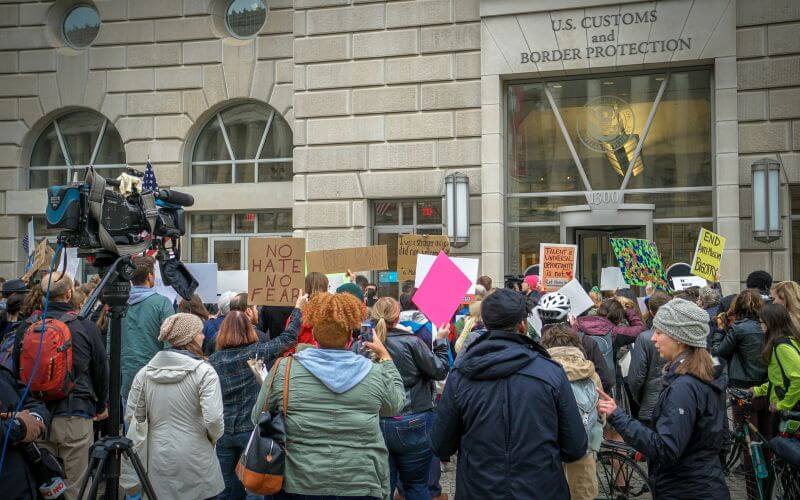Summary: Another federal appeals court has upheld the block on President Trump’s travel ban.
A lower ruling blocking the Trump administration’s travel ban has been upheld by a federal appeals court. The ban by President Trump would prevent travel from six countries for a few months while changes are made. The administration already stated the plan to appeal to the Supreme Court.
The 4th U.S. Circuit Court of Appeals ruled 10-3 to uphold the previous ruling to stop primary portions of the executive order indefinitely. The court used statements from Trump’s campaign where he suggested blocking Muslims from the entering the country as the basis for their decision. The ban is supposed to block travel from six Muslim-majority countries including Iran, Libya, Syria, Somalia, Sudan, and Yemen for 90 days. All other refugees will be prevented from entering the U.S. for 120 days.
Attorney General Jeff Sessions said, “This Department of Justice will continue to vigorously defend the power and duty of the Executive Branch to protect the people of this country from danger, and will seek review of this case in the United Stated Supreme Court.”
The ruling stated, “The evidence in the record, viewed from the standpoint of the reasonable observer, creates a compelling case that (the executive order’s) primary purpose is religious. Then-candidate Trump’s campaign statements reveal that on numerous occasions, he expressed anti-Muslim sentiment, we well as his intent, if elected, to ban Muslims from the United States.”
The ban is the second attempt by the Trump administration. The first version released in January also included Iraq as a blocked country but was blocked instantly by lawsuits and judges. The second version came out in March and was immediately blocked as well.
The comments Trump made during his campaign were in response to a deadly mass shooting in San Bernardino by an ISIS follower. He called for a “total and complete shutdown” of Muslims coming into the country until the government could “figure out what is going on.” He later repeated his plan during a South Carolina rally adding, “We have no choice. We have no choice.”
The second version removed any references to the Muslim religion to make it constitutional but courts have still fought against the ban. White House spokesman Michael Short explained, “These clearly are very dangerous times, and we need every available tool at our disposal to prevent terrorists from entering the United States and committing acts of bloodshed and violence. We are confident the President’s executive order to protect the country is fully lawful and ultimately will be upheld by the Judiciary.”
The 9th U.S. Circuit Court of Appeals is also taking a look at the ban in a separate appeal. As long as an injunction exists against the order, it cannot go into effect.
Judge Paul Niemeyer was one of the three judges to dissent. He said the method of using statements “adopts a new rule of law that uses campaign statements to recast the plain, unambiguous, and religiously neutral text, opening the door to the use of campaign statements to inform the text of later executive orders has no rational limits.” Niemeyer continued, “Unless corrected by the Supreme Court, the majority’s new approach, which is unsupported by any Supreme Court case, will become a sword for plaintiffs to challenge facially neutral government actions, particularly those affecting regions dominated by a single religion.”
Judge Dennis Shedd added, “The President’s supposed goal of ‘banning Muslims’ from the United States is not remotely served by the temporary travel pause, a fact that makes the district court’s factual finding even more dubious.”
Do you feel that the travel ban is a ban on Muslims for a ban on those that come from highly populated terrorist countries? Tell us in the comments below.
To learn more about the ban, read these articles:
- President Donald Trump Signs Revised Travel Ban
- Appeals Hearing on Travel Ban Filled with Bickering
- DOJ Prepares to File Appeal on Travel Ban Holds
Photo: commons.wikimedia.org









































